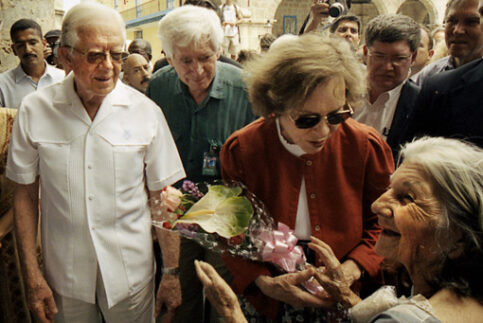As we celebrate Women’s History Month, we recognize the trailblazing women who have shaped our history, uplifted communities, and championed causes that continue to impact lives today. It is fitting to reflect on Rosalynn Carter, former First Lady and President Jimmy Carter, who, in 1980, took a historic step by establishing Women’s History Week, which later became Women’s History Month. His recognition of women’s contributions and his efforts to institutionalize this celebration laid the foundation for honoring the achievements of women across generations.
President Carter’s commitment to equity and recognition of women’s roles extended far beyond a single proclamation. His life’s work reflected a dedication to human rights, uplifting those often left in the margins. But alongside him stood Rosalynn Carter, a lifelong advocate for caregivers, whose leadership in mental health and family caregiving transformed national conversations around aging, health, and support for those who provide care.
Rosalynn Carter: A Champion for Family Caregivers
Rosalynn Carter understood that caregiving is the backbone of our communities. She famously stated, “There are only four kinds of people in the world—those who have been caregivers, those who are caregivers, those who will be caregivers, and those who will need caregivers.” This simple but profound truth underscores the universal nature of caregiving, a role that millions of people take on daily, often with little recognition or support.
As First Lady, Rosalynn Carter was a pioneering advocate for mental health reform and recognized that family caregivers—especially women—should be valued, supported, and protected. She worked to elevate the visibility of caregivers, ensuring that policies, services, and funding acknowledged the essential role that caregivers play in maintaining the health and well-being of older adults, people with disabilities, and those with chronic illnesses.
Her efforts culminated in the establishment of the Rosalynn Carter Institute for Caregivers (RCI) in 1987, a groundbreaking organization that continues to provide research, training, and advocacy to support family caregivers. Through RCI and her continued public service, Rosalynn Carter helped shape many of the caregiving policies and initiatives we see today.
A Lasting Impact on Diverse Family Caregivers
As we commemorate Women’s History Month, it is essential to celebrate Rosalynn Carter’s life and legacy, particularly her work in advancing support for diverse family caregivers. Caregiving disproportionately falls on women—particularly women from racially, ethnically, and culturally diverse backgrounds—who often navigate additional barriers in accessing health services, financial resources, and culturally competent support systems.
Rosalynn Carter’s advocacy helped to lay the foundation for caregiving policies that seek to address these challenges. However, much work remains to be done to ensure that all caregivers—regardless of race, ethnicity, income, or immigration status—receive the support they need and deserve.
Sustaining the Carters’ Legacy
As we honor Women’s History Month, we celebrate the life and work of the late Rosalynn Carter and President Jimmy Carter, whose commitment to equity and caregiving advocacy continues to inspire the next generation. The Diverse Elders Coalition stands on the foundation they built, continuing to push for inclusive policies, culturally competent services, and recognition of the vital role that diverse family caregivers play in our society.
This month, let us remember the Carters’ contributions to caregiving, aging, and gender equity—and let us continue to build upon their work to create a future where all caregivers are valued, supported, and empowered.

